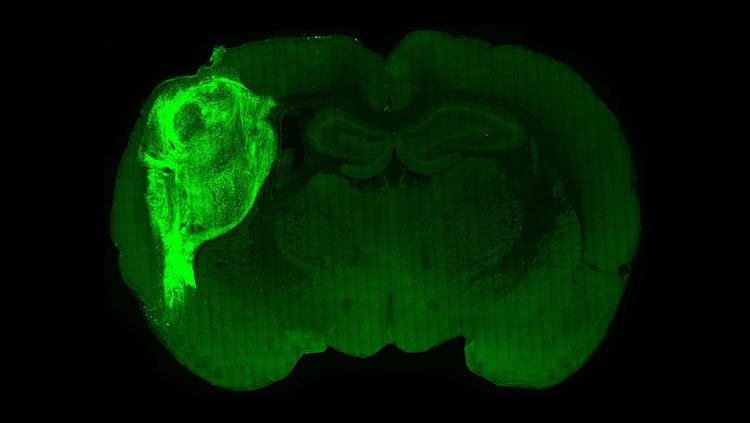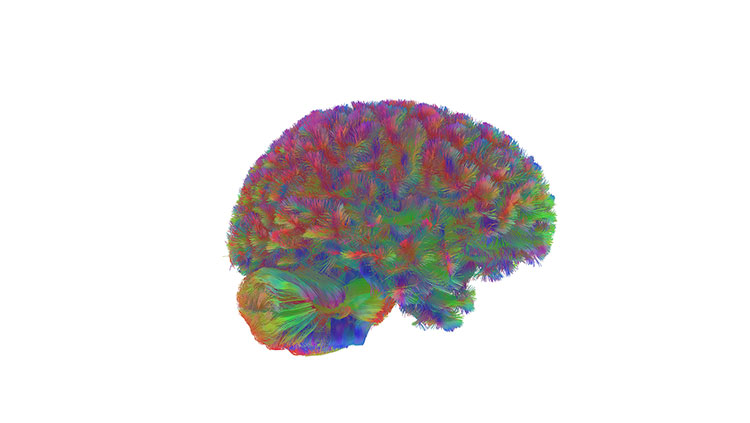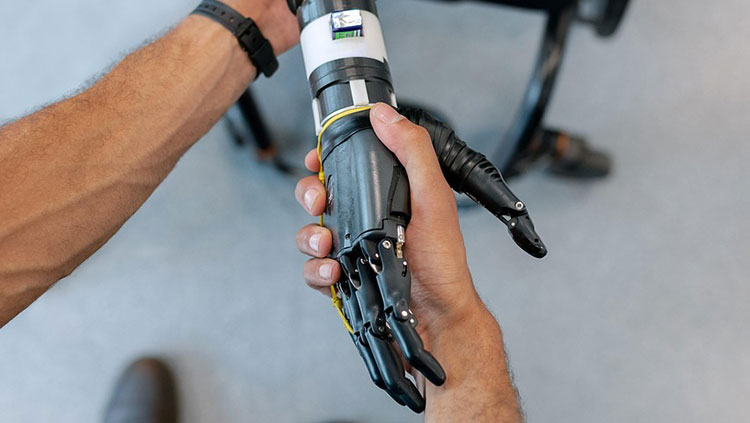ICYMI: New Treatment for Alzheimer’s Offers Patients Benefits, Risks; Still in Review
- Published19 Dec 2022
- Author Christine Won
- Source BrainFacts/SfN

After decades of research, the recent arrival of lecanemab may mean more remembered conversations with loved ones for people with Alzheimer's disease.
In a clinical study of 1,795 people with early stages of Alzheimer’s, the experimental infusion treatment from Eisai and Biogen decreased the rate of cognitive decline by 27%. But it has also been linked to two clinical trial deaths.
Over 18 months, the drug did a better job than placebo removing amyloid from the brain, long believed to be behind the disease, leading to “moderately less decline on measures of cognition and function,” according to a November 29 study published in The New England Journal of Medicine. However, no fewer than one in five patients treated with lecanemab experienced negative side effects such as bleeding or swelling in the brain. Other reported side effects include confusion, headaches, and visual disruptions.
The news of the second death in the phase 3 clinical trial ahead of the data reveal dampened initial anticipation for the drug, though the study results mark the latest promising research in Alzheimer’s that has the field all aflutter.
Big Picture: Though researchers differ on whether the benefits will outweigh the risks, they do agree on one thing: Longer studies are needed to determine the safety and efficacy of lecanemab in early Alzheimer’s.
Mindful of the millions affected by Alzheimer’s looking for hope, the U.S. Food and Drug Administration is reviewing the treatment under its accelerated approval process and expected to make a decision early next year.
Read More: Study: Alzheimer's drug shows modest success slowing declines in memory, thinking. NPR
More Top Stories
- Up to 20% of patients seemingly in a coma or a similar unresponsive state may actually have “covert consciousness,” where the brain is able to respond to stimuli while the body does not. Scientific American
- This is why our brains are susceptible to lies, misinformation, and conspiracy theories. Washington Post
- Activity-dependent gene therapy shows potential as treatment for epilepsy and other similar seizure disorders. Genetic Engineering & Biotechnology News
- A breakthrough use of electrical nerve stimulation paired with physical therapy allowed nine people with chronic spinal injuries who were severely or completely paralyzed to walk again. ScienceAlert
- Discrimination, poverty, segregation, other such stressors likely cause Black Americans' brains to age faster. STAT News
- Adolescents' perception of their financial status or income inequality is linked to their well-being, self-esteem, and bullying. University of Cambridge
- People with quadriplegia were able to guide their wheelchairs with just a thought — and a wearable cap of electrodes capturing their brain signals. HealthDay News
- An increasingly popular target in Parkinson's disease research is “exercise prescription.” Washington Post
- Researchers identified the brain mechanism behind appetite loss linked to chronic pain in mice, which could support the potential development of more effective pain drugs for humans. New Scientist
- A 25-year-old observation that was then ignored by most in the field could now be the key to treating Huntington's disease. STAT News
- Researchers in Japan have devised a new questionnaire for the early detection and treatment of hikikomori, a Japanese term coined in 1998 to describe a pathological condition marked by extreme withdrawal and social isolation. Neuroscience News
- Postbiotics is the latest new kid on the gut microbiome block drawing all the researchers to the yard. New Scientist
CONTENT PROVIDED BY
BrainFacts/SfN
References
What to Read Next
Also In Neuroscience in the News
Trending
Popular articles on BrainFacts.org



















